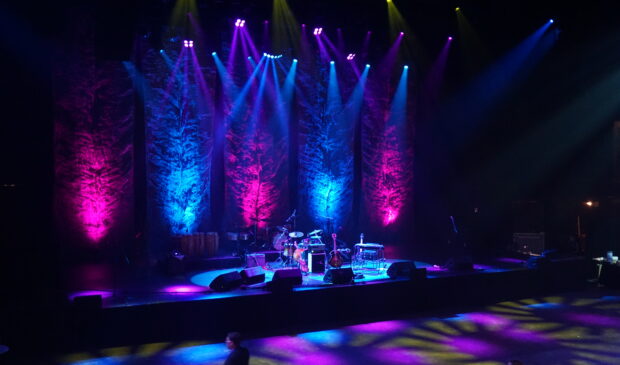City examining incentives for arts spaces, child care centers, grocery stores
Tuesday, June 4, 2024 by
Chad Swiatecki The city is expected to launch a new incentive program for small businesses such as grocery stores, child care centers and creative spaces that bring needed community benefits to underserved areas.
The place-based enhancement program, which is currently going through the community feedback process, is a new initiative from the Economic Development Department that is expected to go before City Council in July. A presentation at last month’s Arts Commission meeting offered insight into how the program could provide financial assistance for dance studios, theater spaces and other arts and music uses that are increasingly at risk due to high rents and development pressures throughout the city,
Donald Jackson, a business process consultant with EDD, explained that the assistance would come predominantly from property tax and sales tax rebates for the new or existing businesses providing an identified community benefit. The program would be a new way to use the state-allowed economic incentives that were last substantially reviewed and updated in 2018.
“Austin is somewhat singular in the degree to which we focus very heavily on making sure that we have really kind of a high-road approach to our incentives with very strong community benefit requirements like living wages, child care support, green building requirements, transportation access, promoting local art and music and things like that,” Jackson said. “The goal of this direction was to really focus on commercial affordability and on affordable real estate for specific types of users and specific types of needs.”
Jackson said small, local businesses with established community connections would likely be prioritized in the program, with the hope of preventing them from being displaced. With Austin’s overall commercial real estate market currently less than 3 percent vacant, the assistance could take the form of a rent stipend or help to fund repairs and capital improvements needed to strengthen a recipient business or organization.
Jackson said music venues and creative spaces would likely fall heavily in the cultural preservation category specified in the program guidelines, with grocery stores in food deserts or child care centers possibly taking space in new mixed-use projects because of the tax rebates. Priority areas where the place-based incentives could be focused include established cultural districts, equitable transit-oriented developments, areas with identified equity issues and city-led redevelopment projects such as Colony Park.
The commission praised the program’s intent and structure and approved a recommendation in support to City Council, asking for some clear goals or milestones to be included in its guidelines.
“Hopefully when this is being presented we could say here’s what we’re hoping to see, particularly for our (arts) interests around creative spaces and affordability and the outcomes that we’re looking for at certain milestones after this is rolled out,” Commissioner Heidi Schmalbach said.
Earlier in the meeting, the commission heard from leaders of three local dance companies who stressed how much of an issue venue availability and affordability is becoming in their struggle to remain in operation.
“Venue (space) is critically important for us. Cost is a big factor for us right now. … There are so many costs and it’s literally not just the cost of the venue rental, it is all of the things that we pay as an organization and all of the expenses that our patrons also have to pay,” said Ann McNair, managing director of the choir Conspirare.
“We’ve been really fortunate to be able to work with a number of local churches. The Baker School has been a great ally, but even within those spaces, there is incredible competition for dates. The Long Center is doing the very best they can, but the reality is we can only be in the Dell Hall and there are two or three holds in front of us. For us to have a thriving arts community long-term, we need to continue to explore the venue spaces … as well as financial considerations impacting both us as the artists and the people who experience the arts.”
Photo by Michael Barera, CC BY-SA 4.0, via Wikimedia Commons.
The Austin Monitor’s work is made possible by donations from the community. Though our reporting covers donors from time to time, we are careful to keep business and editorial efforts separate while maintaining transparency. A complete list of donors is available here, and our code of ethics is explained here.
You're a community leader
And we’re honored you look to us for serious, in-depth news. You know a strong community needs local and dedicated watchdog reporting. We’re here for you and that won’t change. Now will you take the powerful next step and support our nonprofit news organization?



